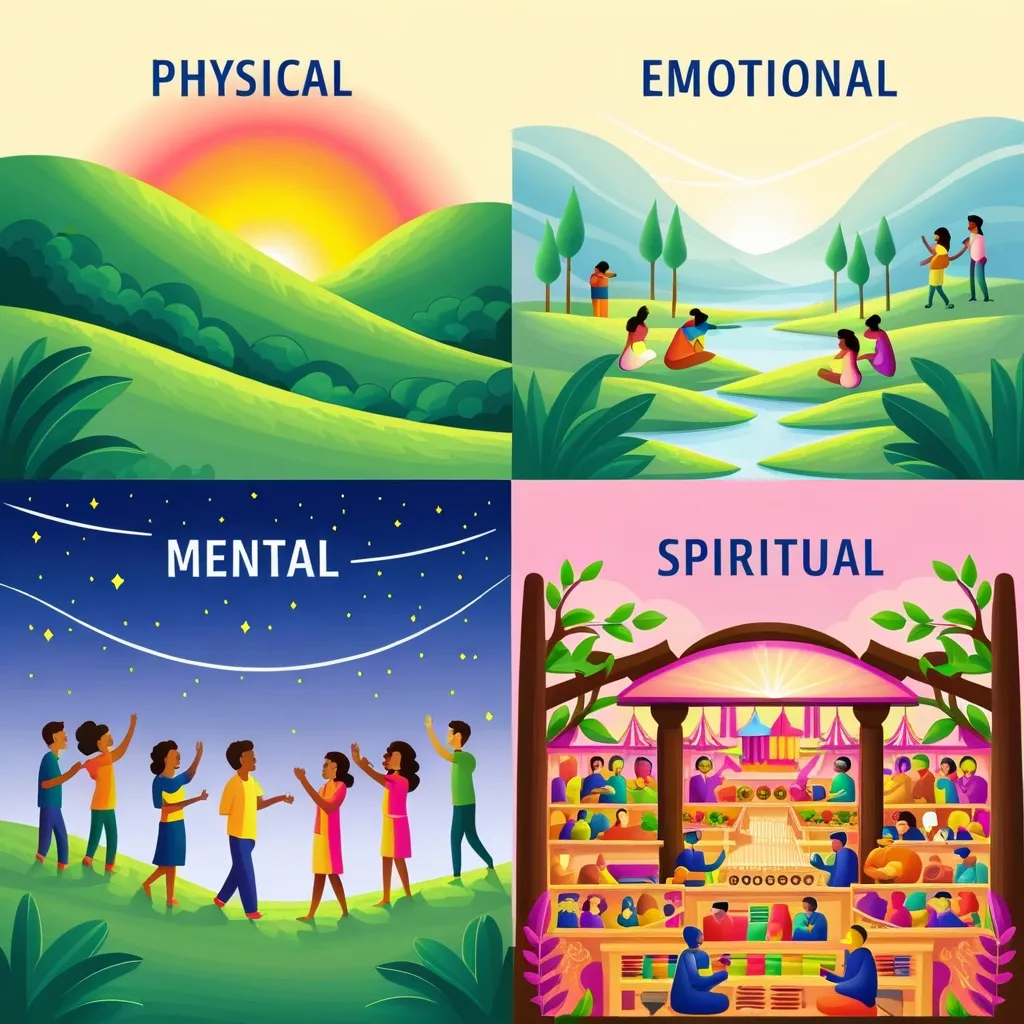The 4-Day Workweek Revolution: Boosting Productivity and Happiness
Let’s face it - the traditional 5-day workweek is starting to feel a bit outdated. More and more companies are experimenting with a 4-day workweek, and the results are pretty exciting. This isn’t just about working less - it’s about working smarter and living better.
So what’s the big deal with the 4-day workweek? Well, it turns out that when people have an extra day off, they tend to get more done in less time. It’s like magic, but it’s actually just human nature. When we know we have less time to work with, we naturally become more focused and efficient.
Take this company in Austria, for example. They switched to 4 8-hour workdays and guess what? Their productivity didn’t drop at all. In fact, employees were working in longer, more concentrated bursts without constantly taking breaks. They got just as much done in 4 days as they used to in 5.
But the benefits go way beyond just getting stuff done. One of the biggest perks of a 4-day week is how it helps prevent burnout and stress. Let’s be real - we’ve all felt that Friday afternoon drag when you’re just counting down the minutes until the weekend. With a 4-day week, that feeling becomes a thing of the past.
A study found that 83% of people think a 4-day workweek would help reduce burnout. That’s huge! And it’s not just speculation - companies that have tried it are seeing real results. At one tech company, switching to 4 days was a total game-changer for employee mental health. People were sleeping better, feeling less stressed, and had more time for their personal lives.
Speaking of personal lives, that extra day off is a big deal. Imagine having a whole extra day each week to do whatever you want. Need to schedule a doctor’s appointment? No problem. Want to start a new hobby? Go for it. Feel like binge-watching that new show everyone’s talking about? You’ve got time for that too.
One person who switched to a 4-day week said they use their Fridays for all the stuff they used to cram into weekends - errands, projects, appointments. That means their actual weekends are way more relaxing and enjoyable. It’s like getting the best of both worlds - a productive workweek and a truly restful weekend.
Now, if you’re an employer, you might be wondering what’s in it for you. Well, how does attracting top talent and keeping your best employees sound? In today’s job market, offering a 4-day workweek can be a major selling point. Companies that have made the switch are seeing more job applications and better employee retention.
That company in Austria I mentioned earlier? They said their hiring process for developers became way easier after introducing the 4-day week. Turns out, people really like the idea of having more time for their lives outside of work. Who would’ve thought?
Of course, making this kind of change isn’t just about changing the schedule. It requires a shift in company culture and management style. You need to trust your employees and give them the freedom to manage their own time and work. It’s about focusing on results rather than hours logged.
One company that made this work built their 4-day week on principles of complete freedom in achieving goals and high accountability. They found that when given this trust and flexibility, employees became more creative, responsible, and productive. It’s like treating people like adults actually makes them act like adults. Shocking, right?
Now, you might be wondering about things like customer support. How can you keep things running smoothly if everyone’s off for three days a week? Well, it turns out there are ways to make it work. Some companies stagger their employees’ days off so there’s always someone available. Others find that the increased focus and productivity during the four working days actually leads to better customer service overall.
But is this sustainable in the long run? Some critics argue that the benefits might wear off once the novelty fades. But companies that have stuck with it for a while are still seeing positive results. Microsoft Japan, for example, saw a nearly 40% increase in productivity during their 4-day workweek trial.
The personal stories from people who’ve made the switch are pretty inspiring. One person described their 4-day week as “fabulous,” saying they felt more rested and ready to work. Another talked about how the extra day off allowed them to take care of personal stuff without stressing about fitting it into their work schedule.
When you think about it, this shift makes a lot of sense. We’ve been promised for decades that technology would give us more leisure time. Well, it’s about time we actually made that happen. The 4-day workweek isn’t just about working less - it’s about reimagining how we balance work and life in the modern world.
Countries around the world are starting to take notice. Spain is even running a national trial to see how a 4-day workweek could work across different industries. It’s exciting to think about how this could change not just individual companies, but entire economies and societies.
So, what’s the bottom line? The 4-day workweek isn’t just a trendy idea - it’s a potential revolution in how we approach work and life. It offers a way to boost productivity, reduce burnout, and give people more time for the things that really matter in life.
If you’re an employer, it might be time to consider giving it a try. You could end up with a more productive, loyal, and happy workforce. And if you’re an employee dreaming of a better work-life balance, maybe it’s time to start dropping hints to your boss about the amazing benefits of a 4-day week.
At the end of the day, work is important, but it’s not everything. The 4-day workweek offers a chance to create a future where we can excel in our careers without sacrificing our personal lives. It’s about working smarter, not harder, and remembering that there’s more to life than what happens in the office.
So here’s to the future of work - may it be productive, balanced, and most importantly, only four days long. Who knows? Maybe someday we’ll look back and wonder how we ever managed to get anything done in just four days a week. But for now, it’s an exciting new frontier in the world of work, and one that’s definitely worth exploring.






